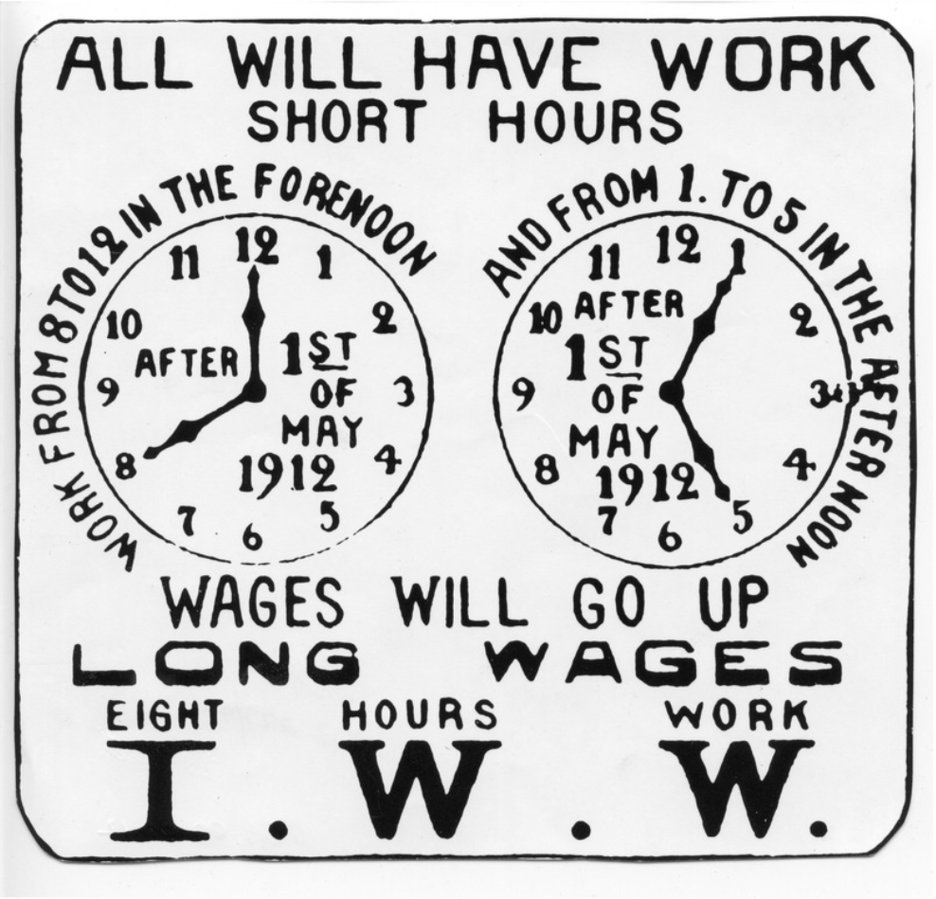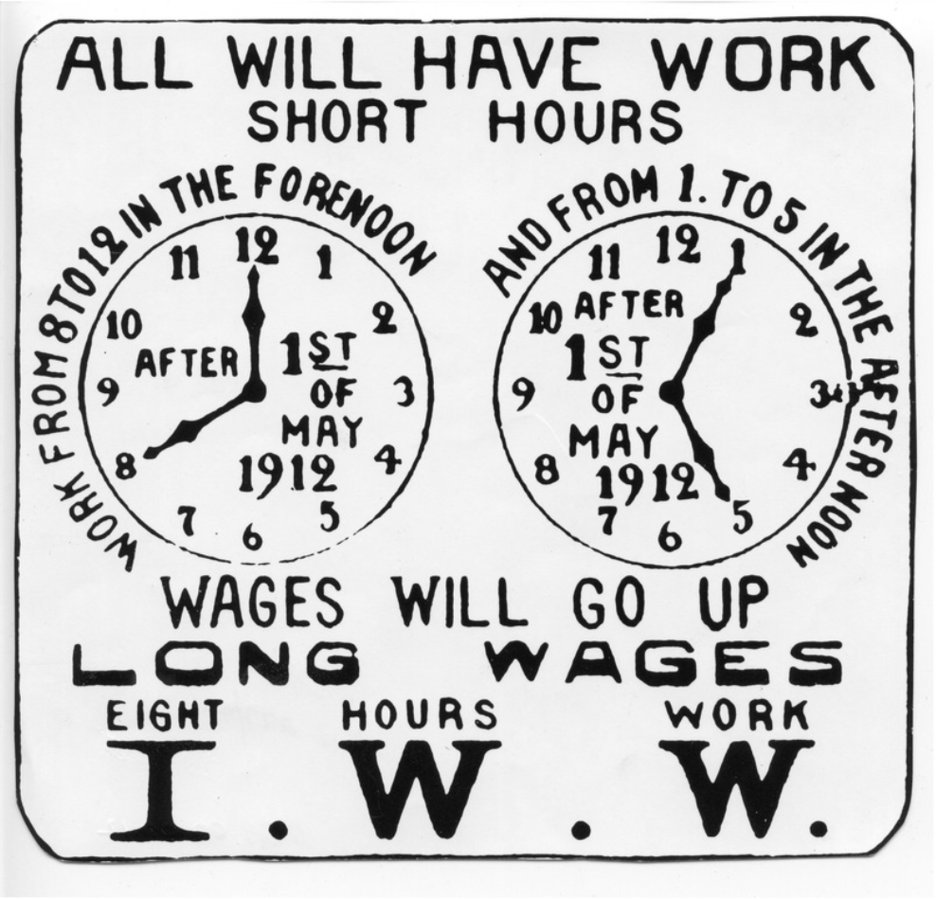
In 2018, dozens of states introduced #RightToRepair bills. These bills are wildly popular among voters, but wildly unpopular among monopolists ranging from @Apple to @Microsoft to @Google to @GM to @JohnDeere to @WahlGrooming. Every one of these bills was defeated.
1/
1/

(If you'd like an unrolled version of this thread to read or share, here's a link to it on pluralistic.net, my surveillance-free, ad-free, tracker-free blog:)
pluralistic.net/2021/05/26/nix…
2/
pluralistic.net/2021/05/26/nix…
2/
Repair advocates regrouped for 2021. 27 R2R bills have been introduced at the state level. Every single one that came up for a vote was defeated, thanks to aggressive lobbying by an unholy alliance of the country's largest, most profitable, least taxpaying corporations.
3/
3/
In 2014, a pair of American political scientists published a groundbreaking peer-reviewed paper analyzing 30 years' worth of US policy-making that compared policy outcomes to public polling results.
cambridge.org/core/journals/…
4/
cambridge.org/core/journals/…
4/
They concluded that GENERAL public sentiment had almost NO impact on US policy making - but the political preferences of wealthy people and large corporations were hugely predictive of what laws and regulations we'd get.
5/
5/
Or, in poli-sci jargon, "Economic elites and organized groups representing business interests have substantial independent impacts on U.S. government policy, while average citizens and mass-based interest groups have little or no independent influence."
6/
6/
The Right to Repair fight is a hell of a proof of this principle. It's really hard to overstate the popularity of the idea that you should be able to fix your own stuff, or choose where you get your stuff fixed.
7/
7/
Take auto-repair. As auto-manufacturing has grown more concentrated, car makers have squeezed independent mechanics - as close to a folk-hero as the American imagination can produce! - to the margins.
8/
8/
After all, forcing car owners to use official service depots has huge advantages: manufacturers can gouge on service prices, they can force drivers to buy expensive original parts, and they get to unilaterally decide when a car is beyond repair and force you to buy a new one.
9/
9/
Drivers have a good intuitive sense that this is going on. That's why, when Bay Staters voted on Massachusetts Question 1 (an automotive R2R ballot initiative) in 2012, it passed with an 86% majority!
10/
10/
Mass Question 1 is a really good example of how monopolists can arm-twist politicians into frustrating the will of the people. Immediately after the 2012 initiative, auto-makers set about retooling their cars to escape the new right to repair rule.
11/
11/
The 2012 rule forced automakers to give mechanics access to diagnostic info from cars' wired internal networks, so Big Car moved all the useful diagnostic data to their cars' WIRELESS networks. Hence the 2020 Massachusetts R2R ballot initiative, which closed this loophole.
12/
12/
The 2020 fight over the Mass. R2R ballot initiative was fuckin' WILD. The car-makers ran some seriously freaky scare-ads, in which the ability of auto mechanics to read wireless diagnostic data led directly to women being stalked and MURDERED.
pluralistic.net/2020/09/03/rip…
13/
pluralistic.net/2020/09/03/rip…
13/
I'm not making this up. The underlying premise was, "We turned your car into a hyper-aggressive mobile surveillance platform that incidentally gets you places. If we let other people see the data we're nonconsensually extracting from you, it will put you in terrible danger."
14/
14/
Thankfully, Bay Staters saw through this bullshit and passed 2020's Question 1 with a 75% majority.
The thing is, people completely understand that they should be in charge of deciding who fixes their stuff.
15/
The thing is, people completely understand that they should be in charge of deciding who fixes their stuff.
15/
They understand that the risk of poor repairs should be addressed through consumer protection laws (which also bind monopolists' own authorized repair depots), not by having the repair market privately regulated by monopolists who have vast conflicts of interest.
16/
16/
This understanding has only deepened through the pandemic year, as authorized repair depots shuttered and vital equipment languished thanks to anti-repair laws and technological countermeasures.
17/
17/
For example, @medtronic's workhorse PB840 ventilators couldn't be refurbed without using a grey-market activation dongle that a single Polish med-tech homebrewed, encasing them in cases harvested from busted clock-radios and guitar pedals.
pluralistic.net/2020/07/10/fli…
18/
pluralistic.net/2020/07/10/fli…
18/
Medtronic - a med-tech monopolist that effected the largest corporate inversion in history to escape US taxes - argues that letting independent med-techs fix its products puts patients at risk, but this argument is every bit as flimsy as the auto-makers' Mass. scare-ads.
19/
19/
It ignores three important facts:
I. Med-techs have ALWAYS done this kind of repair. The change isn't that med-techs are demanding the right to do something new - it's that Medtronic leveraged its monopoly to foreclose on the industry-standard practice
20/
I. Med-techs have ALWAYS done this kind of repair. The change isn't that med-techs are demanding the right to do something new - it's that Medtronic leveraged its monopoly to foreclose on the industry-standard practice
20/
II. Medtronic's own security track-record is comically terrible. This is the company that makes pacemakers that can be wirelessly hacked from across a room to kill its user, whose software update system doesn't even use cryptographic signatures.
21/
21/
If Medtronic is an expert on any aspect of patient safety, that expertise is certainly hard-won, derived from its long history of lethal patient endangerment.
22/
22/
III. If there IS a problem with indie technicians struggling to fix Medtronic products, the obvious answer is to provide service manuals, parts and diagnostic codes.
23/
23/
The case for Right to Repair is incredibly strong. Not only does R2R protect consumers from ripoffs, it also provides local jobs - 1-4% of US GDP comes from the independent repair sector, almost entirely in independent small/medium businesses.
pluralistic.net/2021/02/02/eut…
24/
pluralistic.net/2021/02/02/eut…
24/
Repair is an important environmental, labor and human rights story. As leaked internal memos demonstrate, Apple's aggressively landfilling of devices (so customers buy more) is environmentally devastating and creates demand for conflict minerals.
pluralistic.net/2020/07/31/hal…
25/
pluralistic.net/2020/07/31/hal…
25/
The average American family loses $330/year because of the lack of access to independent repair, a $40b annual drag on the economy thanks to monopoly rents collected by monopoly firms.
26/
26/
To say nothing of the impact on jobs: landfilling a kiloton of ewaste creates <1 job; recycling that waste creates 15 jobs, while repairing it creates TWO HUNDRED good, local jobs that can't be offshored (you don't send a phone overseas for repair).
ifixit.com/Right-to-Repai…
27/
ifixit.com/Right-to-Repai…
27/
Then there's the food security story: John Deere is an agribusiness monopolist that outraged farmers by claiming that they didn't own the tractors they paid six figures for, merely "licensed" them on terms that forbade them from fixing their own machines.
28/
28/
Deere leads Big Ag's anti-repair, forcing farmers to use official parts, preventing modifications that would allow third-party attachments, and collecting outrageous service call fees for a technician whose job is to unlock the tractor after the farmer replaces a part.
29/
29/
This policy means that farmers who fix their own tractors still can't use them even if there's a hail-storm coming and they need to bring in the crop. Farmers - who've been fixing their own gear since the first farmer built a forge next to their farmhouse - are desperate.
30/
30/
Some farmers download anonymously maintained Ukrainian firmware and overwrite the Deere software, creating unknowable risk of remote attack. Others have to maintain "backup tractors" they use for weeks while waiting for Deere to fix their equipment.
npr.org/2021/05/26/100…
31/
npr.org/2021/05/26/100…
31/
Just like Medtronic and GM, Deere claims that allowing independent service creates infosec risk - but just like its anti-repair comrades, Deere's own infosec is a dumpster-fire, with tractors across America at risk of mass-scale cyber-attacks:
pluralistic.net/2021/04/23/rep…
32/
pluralistic.net/2021/04/23/rep…
32/
The common thread joining these firms is monopoly: a lack of competition that allows them to extract billions from the public, and a cozy cohort of business leaders who can mobilize that loot to ensure that politicians and regulators don't give the public what it demands.
33/
33/
American industry is experiencing a wave of monopolism not seen since the Gilded Age, and it affects every sector. Take hair-clippers - a category that exploded during the lockdown thanks to the newly created need for home haircuts.
34/
34/
The clipper market is monopolized by a single firm, @wahlgrooming. As I discovered - the hard way - Wahl has designed its newest clippers so they disintegrate if you try to take them apart to sharpen them.
35/
https://twitter.com/doctorow/status/1380554358824136706
35/
Instead of sharpening these devices, you're expected to buy a new $40 blade (for a shaver that costs $60 all in!), and throw out the old one - or, less realistically, you can mail them your razor for factory sharpening.
36/
36/
You won't be surprised to learn that Wahl is part of the war on repair, sending letters to state legislators warning that letting people sharpen their own clipper blades could lead to fatal housefires.
documentcloud.org/documents/4446…
37/
documentcloud.org/documents/4446…
37/
Two years ago, the @ftc convened an inquiry on independent repair called "Nixing the Fix." The Nixing the Fix report was released earlier this month, and it affirms everything that repair advocates have said all along.
pluralistic.net/2021/05/07/pro…
38/
pluralistic.net/2021/05/07/pro…
38/
The FTC calls bullshit on manufacturers' claims about cyber-risk, housefires, and whether getting your car fixed by your family's beloved mechanic will lead to your murder. It broadly and firmly endorses Right to Repair.
39/
39/
Which brings me back to 2021, were every one of the 27 R2R bills that has been brought before a state legislature for a vote has been defeated, thanks to heavy corporate lobbying by monopolists.
bloomberg.com/news/articles/…
40/
bloomberg.com/news/articles/…
40/
These bills were voted down after heartbreaking testimony from ed-tech repair specialists who described the devastating impact that a broken laptop has on poor families whose kids are doing remote learning.
41/
41/
They were voted down despite the record, the public support, the climate questions, the food security issue, the human rights issues - voted down to preserve the monopoly profits of a tiny number of firms whose claim to being "American" is tenuous at best.
42/
42/
These tax-dodging, offshoring companies view the American public as an all-you-can-eat buffet, and disclaim any responsibility to the country - while still expecting its lawmakers to defend their interests, at the expense of the voters.
43/
43/
Image:
Jcaravanos (modified)
commons.wikimedia.org/wiki/File:E-wa…
CC BY-SA:
creativecommons.org/licenses/by-sa…
eof/
Jcaravanos (modified)
commons.wikimedia.org/wiki/File:E-wa…
CC BY-SA:
creativecommons.org/licenses/by-sa…
eof/
• • •
Missing some Tweet in this thread? You can try to
force a refresh








